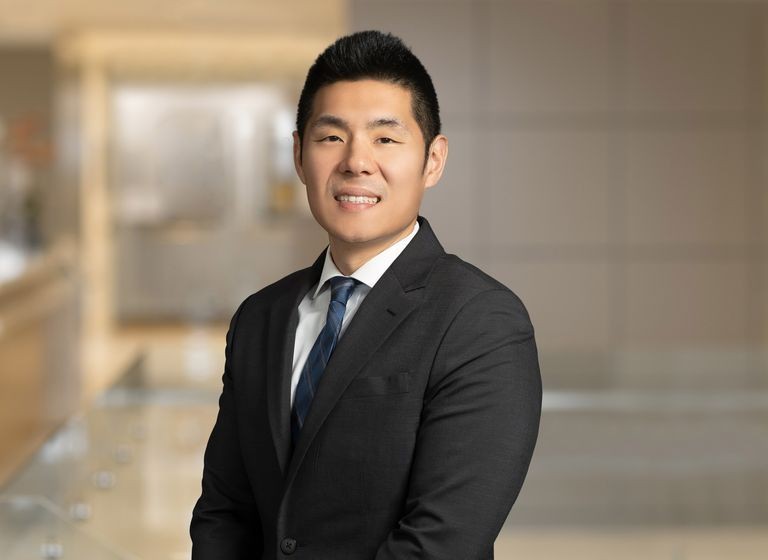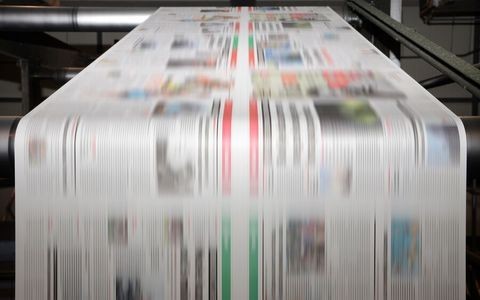Hugham Chan
Overview
Hugham Chan is a counsel in Crowell & Moring’s Washington, D.C. office and a member of its Intellectual Property Group. He litigates patent infringement cases across many industries and has a particular focus on the life sciences and technology sectors.
Career & Education
- U.S. District Court for the Eastern District of Virginia
Assistant U.S. Attorney, 2020–2024
- U.S. District Court for the Eastern District of Virginia
- Professorial Lecturer in Law
Legal Research and Writing, The George Washington University Law School, 2016–2017
- Professorial Lecturer in Law
- Rice University, B.S.
- The George Washington University Law School, J.D., with high honors
- U.S. District Court for the District of Columbia
- U.S. Court of Appeals for the Federal Circuit
- U.S. Court of Appeals for the Ninth Circuit
- New York
- District of Columbia
- Law Clerk, Honorable Raymond T. Chen, U.S. Court of Appeals for the Federal Circuit, 2017
- Law Clerk, Honorable Reggie B. Walton, U.S. District Court for the District of Columbia, 2016
- Board of Directors, Asian Pacific American Bar Association Educational Fund, 2015–2017
- Asian Pacific American Bar Association–DC, 2013–2014
Hugham's Insights
Client Alert | 5 min read | 09.03.25
If You’re Not First, You’re Last: Federal Circuit’s First Review of an AIA Derivation Proceeding
Nearly a decade and a half after the passage of the Leahy-Smith America Invents Act (“AIA”), the Federal Circuit finally had its first occasion to review an appeal of a derivation proceeding that was litigated before the Patent Trial and Appeal Board (“Board”) in Global Health Solutions LLC v. Selner. This case provides helpful guidance for patent litigators regarding the proper legal framework in a derivation proceeding and serves as a reminder that patent applications should be filed as soon as possible. As the facts of this case show, it is important that inventors retain documents and other evidence of the conception of their invention, as well as its communication to others, should there be any challenge to their invention.
Press Coverage | 07.17.25
6 Cases For Patent Attys To Watch In The Second Half Of 2025
Representative Matters
- Defended the U.S. Patent and Trademark Office’s calculation of “A” delay in a patent term adjustment matter, resulting in determination that the agency acted reasonably (and thus did not act arbitrarily or capriciously, or abuse its discretion) in calculating the delay. H. Lundbeck A/S v. USPTO, 2024 WL 3490289 (E.D. Va. July 19, 2024).
- Represented the U.S. Patent and Trademark Office as trial counsel at a prosecution laches trial, where district court agreed with the agency that prosecution laches barred issuance of patents on hundreds of the patentee’s applications. Hyatt v. Vidal, 2024 WL 2208581 (D.D.C. May 16, 2024).
- Represented the U.S. Patent and Trademark Office as appellate counsel in a patent term adjustment case concerning “C” delay and obtained favorable, precedential decision regarding the reasonableness of the agency’s calculation. SawStop Holding LLC v. Vidal, 48 F.4th 1355 (Fed. Cir. 2022).
- Defended the U.S. Patent and Trademark Office in a 35 U.S.C. § 145 action, where district court found that the agency correctly rejected the patent application for claiming patent ineligible subject matter under 35 U.S.C. § 101. Nomula v. Hirshfeld, 561 F. Supp. 3d 617 (E.D. Va. 2021).
- Represented the Social Security Administration as trial and appellate counsel in a putative class action regarding auxiliary benefits for early retirees, where the appellate court agreed that the action had to be dismissed for failure to exhaust administrative remedies in a favorable, precedential decision. N.P. v. Kijakazi, 64 F.4th 577 (4th Cir. 2023).
- Defended the AbilityOne Commission against allegations that the agency unlawfully failed to intervene in a dispute between a contractor and a subcontractor in an Administrative Procedure Act case, which was dismissed against the agency for lack of standing. PRIDE Indus. v. VersAbility Res., Inc., 670 F. Supp. 3d 323, 327 (E.D. Va. 2023).
Hugham's Insights
Client Alert | 5 min read | 09.03.25
If You’re Not First, You’re Last: Federal Circuit’s First Review of an AIA Derivation Proceeding
Nearly a decade and a half after the passage of the Leahy-Smith America Invents Act (“AIA”), the Federal Circuit finally had its first occasion to review an appeal of a derivation proceeding that was litigated before the Patent Trial and Appeal Board (“Board”) in Global Health Solutions LLC v. Selner. This case provides helpful guidance for patent litigators regarding the proper legal framework in a derivation proceeding and serves as a reminder that patent applications should be filed as soon as possible. As the facts of this case show, it is important that inventors retain documents and other evidence of the conception of their invention, as well as its communication to others, should there be any challenge to their invention.
Press Coverage | 07.17.25
6 Cases For Patent Attys To Watch In The Second Half Of 2025
Insights
- |
July-August 2025
Intellectual Property & Technology Law Journal
Hugham's Insights
Client Alert | 5 min read | 09.03.25
If You’re Not First, You’re Last: Federal Circuit’s First Review of an AIA Derivation Proceeding
Nearly a decade and a half after the passage of the Leahy-Smith America Invents Act (“AIA”), the Federal Circuit finally had its first occasion to review an appeal of a derivation proceeding that was litigated before the Patent Trial and Appeal Board (“Board”) in Global Health Solutions LLC v. Selner. This case provides helpful guidance for patent litigators regarding the proper legal framework in a derivation proceeding and serves as a reminder that patent applications should be filed as soon as possible. As the facts of this case show, it is important that inventors retain documents and other evidence of the conception of their invention, as well as its communication to others, should there be any challenge to their invention.
Press Coverage | 07.17.25
6 Cases For Patent Attys To Watch In The Second Half Of 2025






